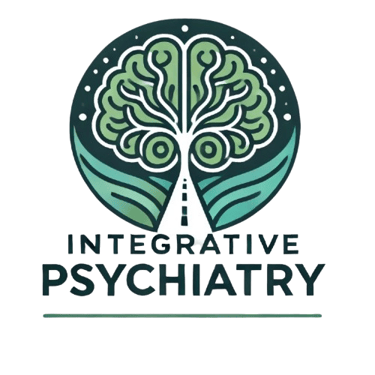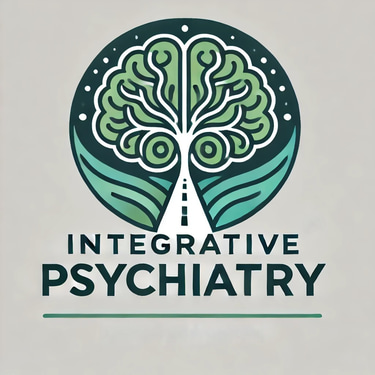Feeling Anxious? 5 Integrative Approaches to Find Calm in Connecticut
Anxiety can feel like a constant storm, a relentless hum of worry that disrupts your peace. While it's one of the most common mental health challenges, finding lasting relief can be difficult. For many in Connecticut seeking a more comprehensive path to calm, integrative psychiatry offers powerful strategies that go beyond just managing symptoms. An integrative approach combines the best of conventional medicine with evidence-based complementary therapies to address the root causes of anxiety. Here are five integrative approaches that can help you manage anxiety and reclaim your sense of well-being.
10/24/20242 min read


1. Nutritional Psychiatry: Fueling a Calmer Brain
What you eat directly impacts your mood. A diet high in processed foods, sugar, and caffeine can fuel the very brain patterns that lead to anxiety.
The Approach: A targeted nutritional plan can help stabilize blood sugar, reduce inflammation, and provide the key nutrients your brain needs to produce calming neurotransmitters like serotonin. This often involves increasing your intake of omega-3 fatty acids (found in fatty fish), magnesium (in leafy greens and nuts), and B vitamins.
2. Targeted Supplementation and Herbal Medicine
While not a replacement for a healthy diet, specific supplements can be incredibly effective in modulating the body's stress response.
The Approach: After a thorough evaluation, an integrative psychiatrist might recommend supplements like L-theanine (an amino acid from green tea known for promoting relaxation without drowsiness) or adaptogenic herbs like Ashwagandha. These natural compounds can help regulate the stress hormone cortisol and support your nervous system.
3. Mindfulness and Mind-Body Practices
Anxiety often traps us in a cycle of "what if" thinking. Mindfulness practices anchor you firmly in the present moment, breaking that cycle.
The Approach: This is a structured practice of paying attention to your breath, thoughts, and bodily sensations without judgment. Guided meditation, yoga, and simple deep-breathing exercises can retrain your brain's response to anxious thoughts, giving you a powerful tool you can use anytime, anywhere—from a stressful commute on I-84 to a quiet moment at home.
4. The Power of Movement and Nature
Our bodies were designed to move. A sedentary lifestyle can worsen feelings of anxiety and restlessness.
The Approach: Regular physical activity is one of the most effective anti-anxiety strategies available. It burns off excess adrenaline while boosting feel-good endorphins. In a state as beautiful as Connecticut, this could mean a brisk walk through a local park or a hike in one of our many state forests.
5. Optimizing Your Sleep Hygiene
Poor sleep is a major driver of anxiety, and anxiety, in turn, wreaks havoc on sleep. Breaking this vicious cycle is essential.
The Approach: An integrative plan will focus on your "sleep hygiene." This involves creating a consistent sleep schedule, optimizing your bedroom for rest (cool, dark, and quiet), and developing a relaxing pre-sleep routine to restore a healthy sleep-wake cycle.
If you're tired of just coping with anxiety and want to build a true foundation of calm, exploring these integrative approaches with a qualified professional can be a life-changing step.
Integrative Psychiatry
Location
45 South Main Street
Suite 111
West Hartford CT 06107
Phone Number
860.615.3629
959.236.5722
support@drzelisko.com


